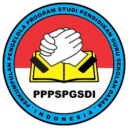BAHAN AJAR BERBASIS MODEL QUANTUM TEACHING UNTUK MENINGKATKAN KEMAMPUAN BERPIKIR KRITIS
DOI:
https://doi.org/10.35568/naturalistic.v4i1.457Keywords:
Teaching materials, quantum teaching model, critical thinking skills abilityAbstract
This study aims to describe the effect of quantum teaching model-based teaching materials on critical thinking skills of elementary school students. This type of research is development research using a model developed by Borg and Gall. Teaching Material Development starts from the preliminary study phase, planning, product design, product design validation, product trial and final product. The research instruments used consisted of validation sheets, sheets, questionnaires for analyzing student needs, cognitive tests, and tests of critical thinking skills. The research subjects were students in Class V of SDN 1 Cengal, SDN 2 Cengal and SDN 3 Cengal, Japara District, Kuningan Regency. The results showed that there was an increase in students' critical thinking skills using quantum teaching model-based teaching materials compared to students using conventional learning. The difference in this increase can be seen in the results of the gain test of students' critical thinking abilities in the experimental class showing N-gain of 0.59. Then the N-gain in the experimental class is included in the criteria of being. While the results of the test gain students' critical thinking skills in the control class obtained N-gain of 0.20. Then the N-gain in the control class is included in the low criteria
Downloads
Downloads
Published
Versions
- 2020-07-06 (2)
- 2019-10-31 (1)
How to Cite
Issue
Section
License
Copyright of Journal Naturalistic : Jurnal Kajian Penelitian Pendidikan dan Pembelajaran (e-ISSN:2548-8589, p-ISSN:2528-2921).
Open Access Policy
This journal provides immediate open access to its content on the principle that making research freely available to the public supports a greater global exchange of knowledge.
This journal is open access journal which means that all content is freely available without charge to users or / institution. Users are allowed to read, download, copy, distribute, print, search, or link to full text articles in this journal without asking prior permission from the publisher or author. This is in accordance with Budapest Open Access Initiative.





